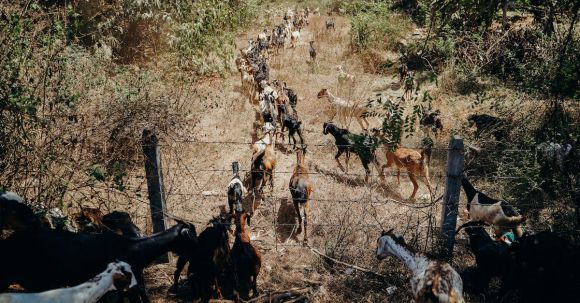In a world where the global population is constantly growing, ensuring food security has become a pressing concern. Food security, defined as having access to sufficient, safe, and nutritious food, is essential for the well-being and survival of individuals and communities. Sustainable agriculture, on the other hand, refers to the practice of growing food in a way that minimizes environmental impact while also meeting the needs of present and future generations. In this article, we will explore the link between sustainable agriculture and food security, and why it is crucial for the future of our planet.
Promoting Biodiversity for Resilient Food Systems
One of the key principles of sustainable agriculture is the promotion of biodiversity. Biodiversity refers to the variety of life forms present in an ecosystem, including plants, animals, and microorganisms. By cultivating diverse crops and creating habitats for beneficial insects and wildlife, sustainable agriculture helps to maintain a balanced ecosystem. This, in turn, contributes to the resilience of our food systems.
Biodiversity is vital for food security because it enhances the ability of crops to withstand pests, diseases, and climate change. In monoculture farming, where only one crop is grown on a large scale, the risk of crop failure due to pests or diseases is high. However, by diversifying crops, farmers can reduce this risk and ensure a more stable food supply.
Conserving Natural Resources for Future Generations
Sustainable agriculture also plays a crucial role in conserving natural resources such as water, soil, and energy. Traditional farming practices, such as excessive use of synthetic fertilizers and pesticides, can have detrimental effects on the environment. They can lead to soil erosion, water pollution, and depletion of natural resources.
In contrast, sustainable agriculture focuses on using organic fertilizers, crop rotation, and integrated pest management techniques. These practices help to maintain the fertility of the soil, conserve water, and reduce the use of fossil fuels. By conserving natural resources, sustainable agriculture ensures that future generations will have access to the resources they need to grow food.
Empowering Small-Scale Farmers
Another important aspect of sustainable agriculture is its focus on empowering small-scale farmers. Small-scale farmers, who often rely on traditional farming methods, play a significant role in global food production. They produce a significant portion of the world’s food, especially in developing countries.
However, small-scale farmers often face numerous challenges, including limited access to resources, lack of infrastructure, and low market prices for their produce. Sustainable agriculture aims to address these challenges by providing technical support, training, and access to markets for small-scale farmers. By empowering small-scale farmers, sustainable agriculture helps to improve their livelihoods and ensures a more equitable distribution of food.
The Way Forward: Investing in Sustainable Agriculture
To achieve food security for all, it is crucial that we invest in sustainable agriculture. This requires a shift in our current food production systems towards more sustainable practices. Governments, international organizations, and individuals all have a role to play in promoting sustainable agriculture.
Governments can provide support and incentives for farmers to adopt sustainable practices. They can also invest in research and development to improve agricultural technologies and practices. International organizations can provide funding and technical assistance to developing countries to promote sustainable agriculture. Individuals can make a difference by choosing to support sustainable and local food systems.
In conclusion, sustainable agriculture and food security are closely linked. By promoting biodiversity, conserving natural resources, and empowering small-scale farmers, sustainable agriculture can ensure a more resilient and equitable food system. The challenges of feeding a growing population in a changing climate are significant, but by investing in sustainable agriculture, we can create a future where everyone has access to sufficient, safe, and nutritious food.
